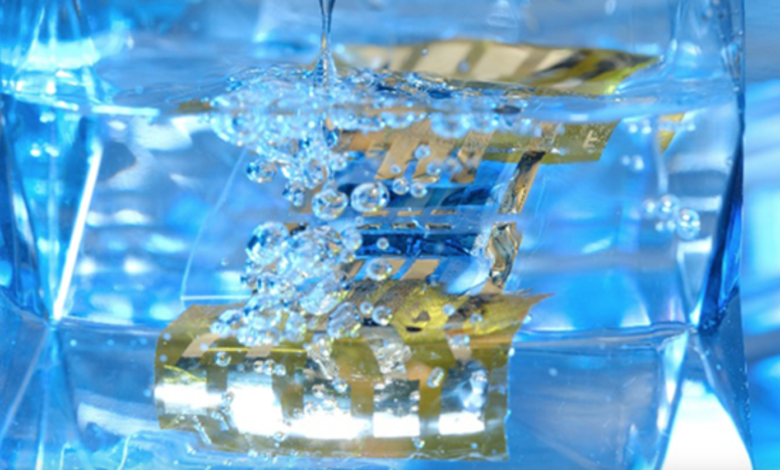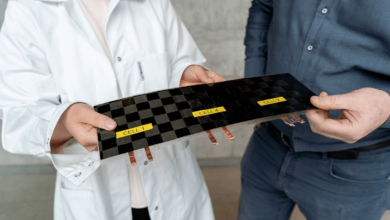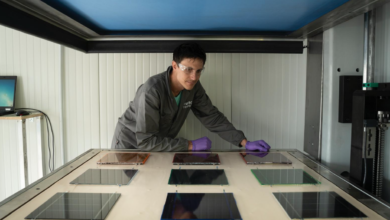From Japan the organic photovoltaic film that you can wash and wring

Maintained 96% of initial performance after 300 contortions in water
Floating photovoltaics is one of the great trends of solar innovation. But what would happen if instead of leaving the cells to float on the surface, we put them directly to soak? Nothing if the device in question is the new organic solar film created by scientists of the Japanese research center Riken. In collaboration with colleagues at the University of Tokyo, experts have developed an ultra-flexible organic photovoltaic that can be folded, pulled and left to soak for hours without a significant loss of initial performance.
read also New efficiency record for flexible solar cells
This is particularly important for the application of the new wearable electronics. Organic solar cells, thanks to their high lightness and flexibility, are better suited than others to be integrated with garments or fabrics. Making them also water resistant therefore becomes an essential element to be able to use them in daily life. It is a pity that, generally, waterproofing involves the insertion of cells inside a thick and rigid encapsulation layer, compromising its elasticity and even output performance.
The new waterproof organic photovoltaic film
Japanese labor managed to kill two birds with one stone. How? Working on the weak point of permeability or the interface between the active layer and the anode. In detail, the scientists deposited the anodic layer, in this case, a silver electrode, directly on the active layer, creating a better adhesion between the two elements. This close contact ensures a significant impermeability even in case of mechanical deformation.
For the process, the group used a thermal annealing process, exposing their organic photovoltaic film to air at 85 ºC for 24 hours. “It was challenging to form the layer, but we were happy to have made it and eventually we were able to create a film of only 3 micrometers thick,” explains Sixing Xiong, the first author of the article published in Nature Communications.
For the tests the team completely immersed the organic photovoltaic film in water for four hours, discovering that at the end of the test, it still had 89% of its initial efficiency. If subjected to elongation of 30% for 300 times underwater, the performance drops instead only to 96%. As a final test, they put it through a washing machine cycle that the organic solar film brilliantly passed.





